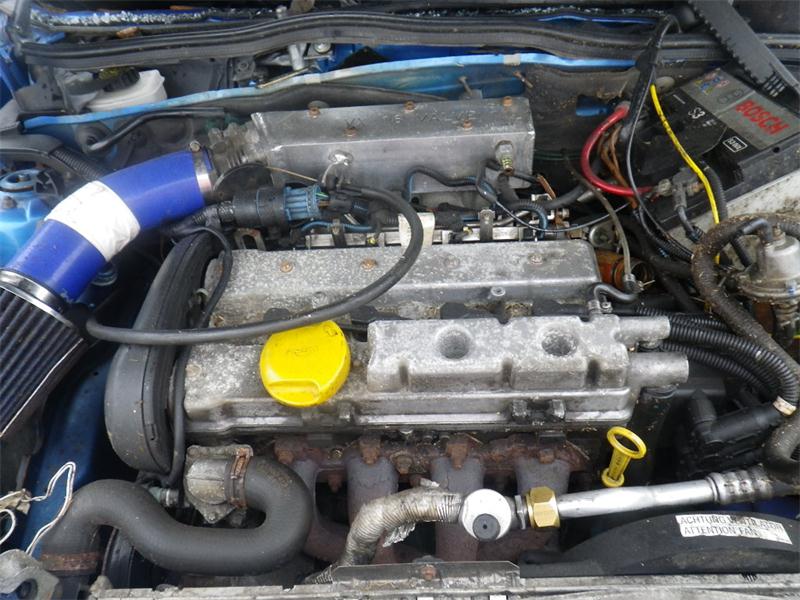Engine Purchasing Expert Tips on Selecting the Right Engine for Your Particular Needs
Picking the ideal engine for your particular requirements entails a complex interplay of aspects that go past plain horsepower numbers. By diving right into the ins and outs of power versus efficiency, assessing gas rankings, and budgeting for lasting expenses, one can truly maximize their engine choice.
Power Vs. Performance: Finding the Balance
When selecting an engine, it is crucial to strike a balance in between power and performance to satisfy your particular needs effectively. Power describes the engine's capability to create power for propulsion, figuring out elements like velocity, towing ability, and total performance - Opel Corsa 1.4 Engine Price. On the various other hand, effectiveness associates with just how well the engine uses gas to generate power, impacting factors such as gas economic climate and environmental kindness
Accomplishing the best equilibrium in between power and efficiency is important due to the fact that an engine that is too effective might consume extreme gas, causing greater operating costs and unnecessary stress on the setting. Conversely, an engine that prioritizes performance over power may result in slow-moving performance, especially sought after circumstances like towing hefty tons or driving uphill.
To make a notified decision, consider factors such as your regular driving problems, the desired use the automobile, and your individual choices. By assessing your concerns and requirements, you can select an engine that strikes the best balance in between power and performance, ensuring optimal efficiency while decreasing environmental influence and operating costs.
Understanding Engine Size and Type
To better improve the option process of an engine that strikes the optimum equilibrium in between power and performance, it is crucial to dig right into the intricacies of comprehending engine dimension and kind. Engine dimension refers to the complete quantity of air and gas that can be pushed with the engine cyndrical tubes.
Additionally, engine type plays an essential duty in identifying the efficiency qualities of an engine. Usual engine types include inline engines, V engines, and rotary engines, each with its distinct benefits and downsides. The engine type influences variables such as the engine's dimension, weight distribution, and power delivery. Recognizing the interaction between engine size and kind is important in selecting an engine that straightens with your particular needs and priorities, whether it be power, efficiency, or an equilibrium of both.

Consider Your Vehicle's Requirements
Considering your car's needs is a fundamental step in the engine selection process to make sure optimum performance and functionality. It is important to examine aspects such as the intended usage of the vehicle, its weight, lugging capability, and gas effectiveness requirements. For example, if you are seeking an engine for a durable vehicle that will certainly be made use of for towing, you will require a powerful engine with high torque capabilities. On the important site various other hand, if you are picking an engine for a portable vehicle primarily made use of for city travelling, gas performance may be an extra critical aspect to consider.
Furthermore, the surface on which the automobile will mainly run ought to influence your engine selection. A robust engine with excellent climbing up power will be essential if you frequently drive in mountainous or uneven locations. On the other hand, for flat surfaces, an extra fuel-efficient engine may suffice. By straightening the engine specs with your lorry's demands, you can make certain that your lorry runs efficiently and meets your efficiency expectations.
Assessing Gas Effectiveness Ratings
Assessing gas efficiency scores is a crucial aspect of choosing the right engine for your automobile, ensuring cost financial savings and environmental sustainability. Gas effectiveness rankings, commonly determined in miles per gallon (MPG) for gas engines or kilowatt-hours per 100 miles (kWh/100 miles) for electrical engines, suggest how far a lorry can travel on a certain amount of gas or power. Higher MPG or lower kWh/100 miles values symbolize more efficient engines, translating to lowered gas costs and lower carbon discharges.
Furthermore, contrast various engine options within the exact same automobile course to determine the most affordable option. Aspects such as engine dimension, weight, aerodynamics, and crossbreed or electric capabilities can all influence gas effectiveness.
Budgeting for Long-Term Costs
Tactically intending for lasting expenses is imperative when selecting an engine, making sure financial sustainability over the vehicle's life-span. While the preliminary acquisition cost of an engine is a substantial element, it is vital to consider the long-term costs linked with upkeep, repairs, and fuel usage.
Furthermore, researching the schedule and cost of substitute components for the selected engine is crucial in budget plan planning. By thoroughly budgeting for these long-term costs and factoring them right into the decision-making process, people can pick an engine that not just satisfies their instant demands but also remains cost-effective throughout its life expectancy.
Conclusion
Finally, selecting the best engine for your details demands requires balancing power and effectiveness, recognizing engine size and kind, considering your vehicle's demands, examining fuel performance ratings, and budgeting for long-term costs. By carefully taking into consideration these aspects, you can make certain that you pick an engine that meets your requirements and gives ideal efficiency for your lorry.
To better improve the choice procedure of an engine that strikes the ideal equilibrium between power and performance, it is essential to delve into the ins useful reference and outs of comprehending engine dimension and kind. Engine size refers to the complete quantity of air and gas that can be pressed with the engine cyndrical tubes. Common engine kinds include inline engines, V engines, and rotary engines, each with its unique advantages and downsides. Comprehending the interplay Visit Website between engine dimension and type is vital in selecting an engine that aligns with your specific demands and concerns, whether it be power, performance, or an equilibrium of both.
